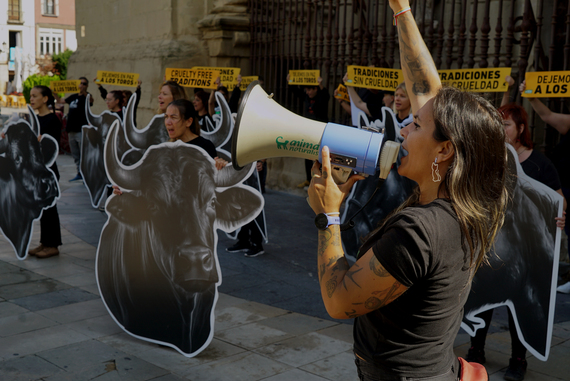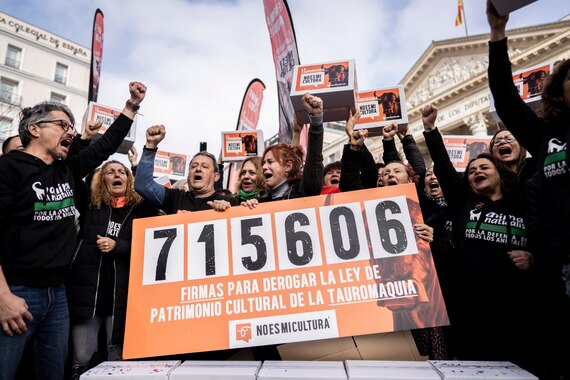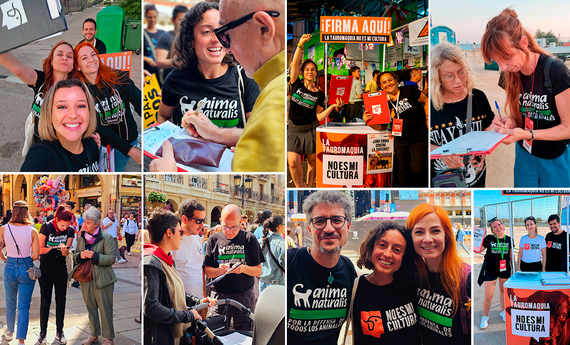The Popular Legislative Initiative (ILP) #NoEsMiCultura to repeal Law 18/2013—which designates bullfighting as Cultural Heritage—has far exceeded the required signature threshold for processing in the Spanish Congress. According to certification issued by the Electoral Census Office, a total of 664,777 signatures have been validated from citizens supporting the removal of this law. This result marks a milestone in the fight for animal rights and the abolition of bullfighting in Spain.
On February 17, 2025, a stack of forms carrying 715,606 signatures was delivered to the Electoral Census Office. Of these, 709,292 were collected on paper and 6,314 were submitted digitally—figures that hide countless stories of anonymous volunteers, long nights of gathering signatures, and one unanimous demand: to abolish Law 18/2013, which since 2013 has legally shielded bullfighting as cultural heritage. After a rigorous sampling process—with a 95% confidence level and an absolute error below 1%—the final certified figure reached 664,777, exceeding the legal minimum of 500,000 needed for the matter to be brought before Congress for debate.
"These are not just signatures; they are 664,777 ethical reasons to leave behind a tradition that wounds our dignity", stresses Aüida Gascón, director of AnimaNaturalis in Spain. Official data supports her urgency: according to the Cultural Statistics Yearbook, bullfighting festivities dropped by 62% between 2009 and 2023, and an IPSOS survey (2023) reveals that 77% of Spaniards support its prohibition.
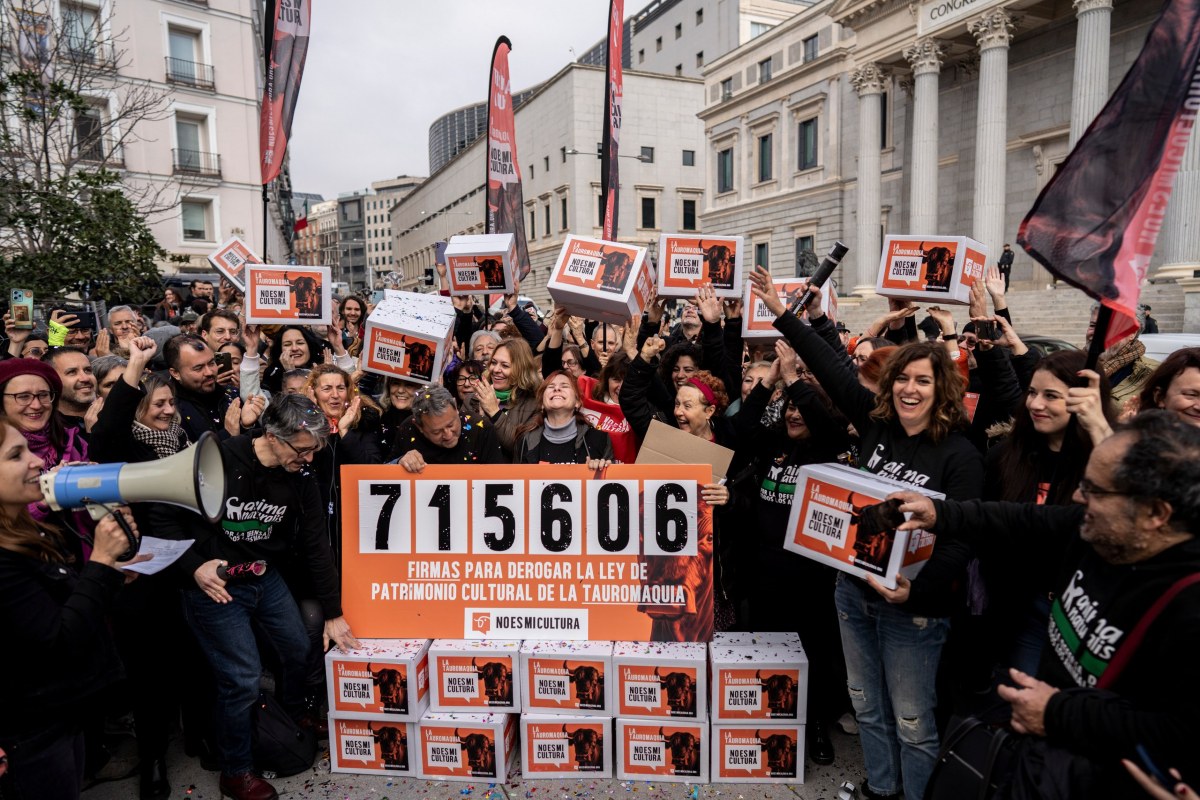
Cristina Ibáñez, member of the ILP’s Promotional Committee, emphasized the importance of this achievement: "We have shown that Spanish society rejects bullfighting and wants it to no longer be protected by the State. This is a historic step for animal rights in our country." Ibáñez also highlighted the collective effort behind this initiative: "Thousands of volunteers spent months collecting signatures across the nation, facing bureaucratic and administrative challenges. Their dedication has been key to reaching this record-breaking number."
On April 3, 2025, the Central Electoral Board confirmed that the ILP meets all requirements and forwarded it to the Congress of Deputies. The Chamber’s Bureau has a maximum period of six months to include the proposal in the plenary agenda for debate. The mechanism is straightforward: amend the Organic Law 3/1984 to return the authority to regulate bullfighting to the autonomous communities, just as Catalonia and the Baleares have already done.
"We are not only talking about bulls; we are talking about democratic consistency," explains Gascón. "82% of people under 35 reject this practice. What kind of cultural heritage is built against the majority’s sentiment?" Figures from the Ministry of Culture (2023) reinforce her stance: only 6.3% of the population attended a bullfighting event in the past year, and 68% did so with subsidized or free tickets.
The validation report—endorsed by Dª. María Lourdes Abella Nieva, deputy director of the Electoral Census—details that out of the 6,314 digital signatures, 5,135 were verified as coming from eligible voters.
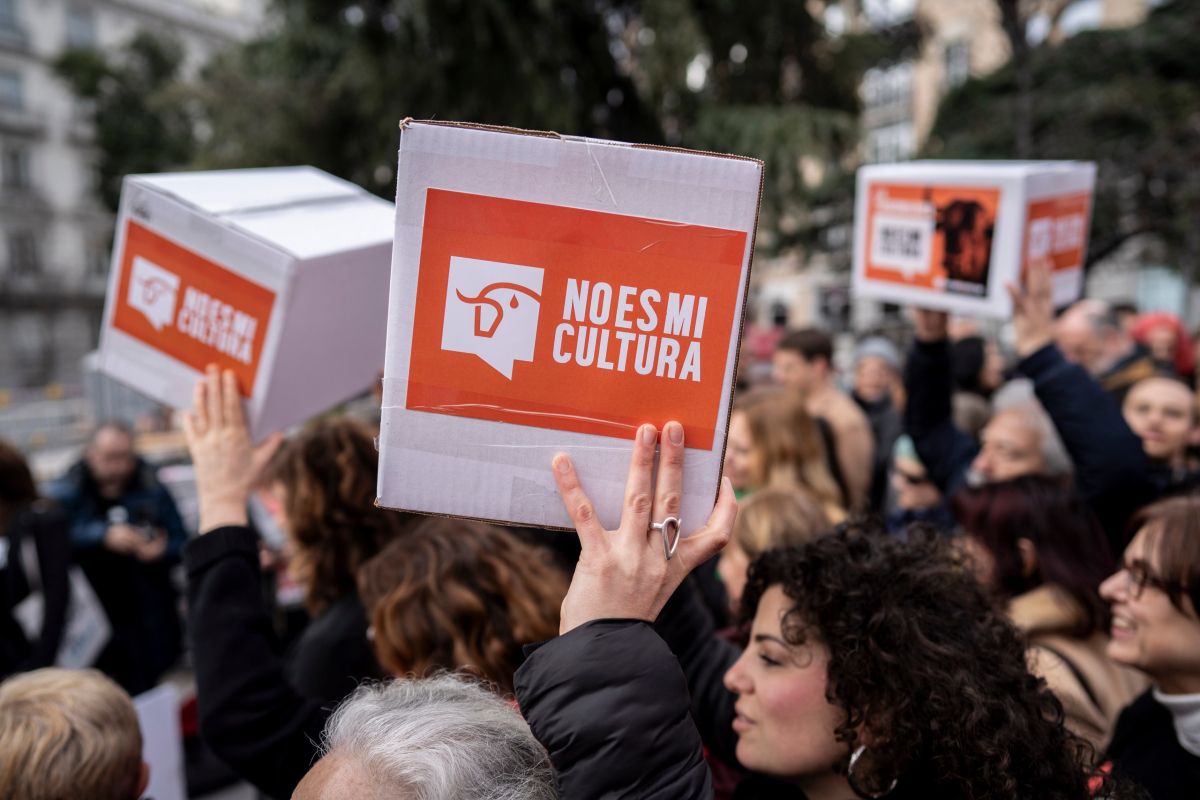
"Catalonia abolished bullfighting in 2010, and its cultural sector didn’t collapse; on the contrary, it flourished," recalls Gascón. The ILP #NoEsMiCultura is not an end in itself, but a bridge. Its success lies on three pillars: dismantling the legal framework that protects bullfighting, reallocating public funds to vibrant culture—such as theater and music, which attract 94% more audience—and promoting empathetic education.
The delivery and subsequent validation of the signatures represent an unprecedented victory for the movement to abolish bullfighting in Spain. "This is a clear message to our political representatives: the majority of society rejects animal abuse as a spectacle and demands that this law be repealed," affirmed Ibáñez. With the official certification in hand, the ILP’s Promotional Committee now focuses on the parliamentary process. The proposed law must be debated and voted on in the Congress of Deputies, where its future will be decided. "Our work is not done here. We will continue pressing political parties to listen to the voice of the citizens and end the institutional protection of bullfighting," concluded Ibáñez.
The processing of this ILP opens a new chapter in the struggle for animal rights in Spain. This citizen-driven initiative not only forces the debate in Congress by reaching the minimum requirement of 500,000 signatures, but also exemplifies how grassroots mobilization can influence political decisions and alter the course of history. Support AnimaNaturalis in its work for animal rights and in facing the second phase of this major campaign: pressuring the deputies—especially those from the Spanish Socialist Workers' Party (PSOE)—to vote in favor of the initiative. Consider making a donation or becoming a member of AnimaNaturalis.



